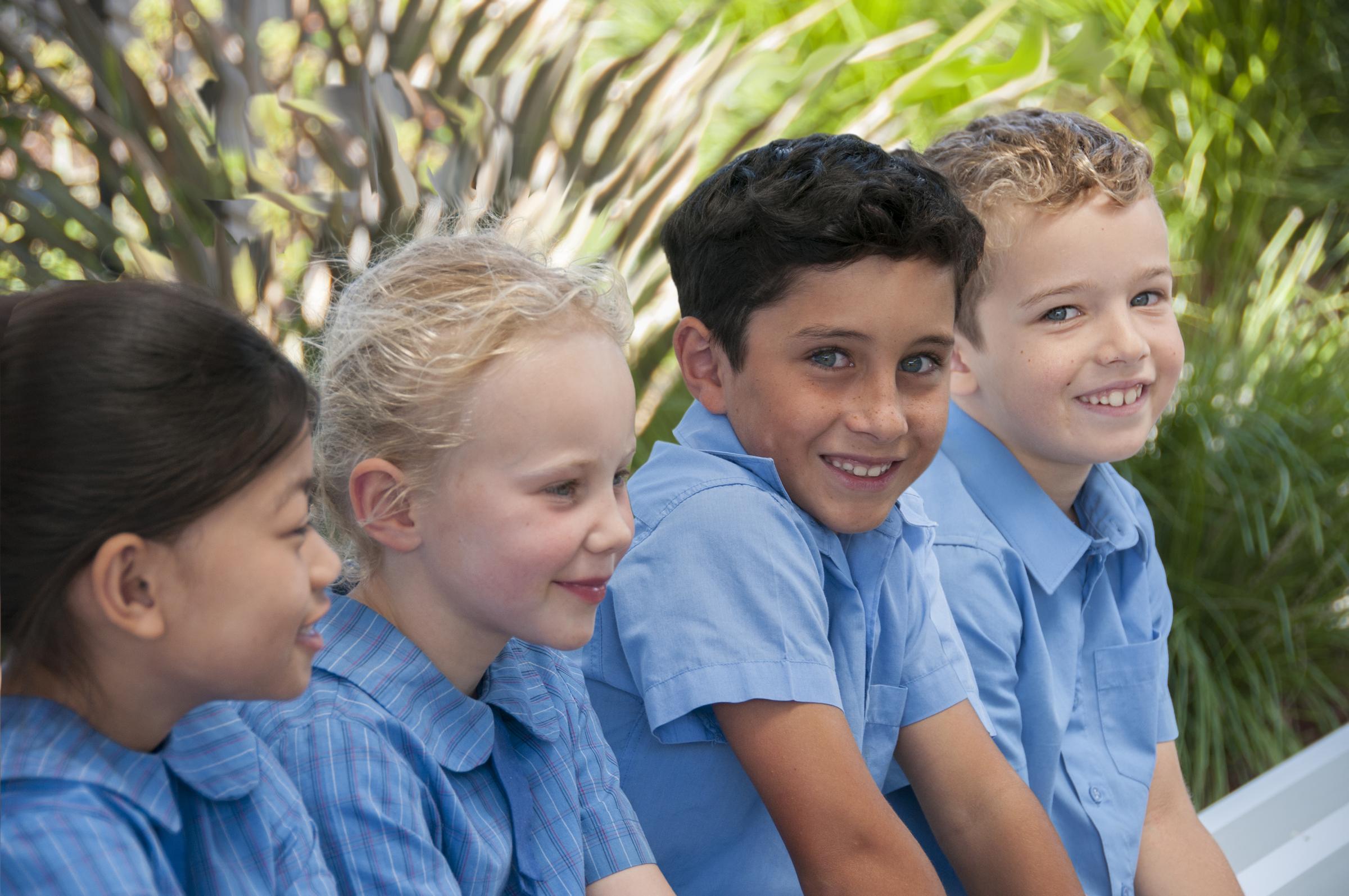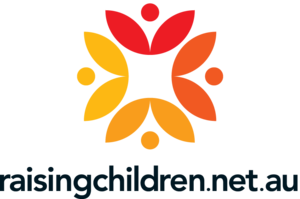Student Well-being

The Year 3/4 Community
“If you make a mistake, the first thing you should say is “I’m sorry” and be honest because if you are honest you are owning your actions and that is important because people might forgive you and you can start moving on” said Year 3/4 student, Shreyan Chatterjee. This is a key lesson the Year 3/4 students have been exploring in our Wellbeing lessons over the term.
We started by graphing out what made us angry and scared and discussed how none of our lists were the same. The conversations that followed were really interesting and focused on how we can all have different fears, reactions and calming strategies.
The students were then exposed to 10 different calming strategies such as Robot to Rag Doll, Balloon Breathing, Take a Walk, Count First, Ice to Water and Squeeze and spent some time role playing scenarios where these techniques might be helpful. We hope that students can notice the signs that they are beginning to feel frustrated and that these techniques and strategies help us to regulate our emotions before we get to a point where we can no longer control our actions.
We have already noticed some students using this technique during recess and lunch times when they are feeling overwhelmed or if there is a disagreement and we encourage you to not only model them at home, but praise your child if you see them using one of these strategies.
Then the Year 3/4 community moved into owning our actions, acknowledging that we have made a mistake and explored what makes a good apology. “Looking people in the eyes and being honest are important when you say sorry because that means they know you truly mean it” said Year 4 student, Sophie Fitzsimon.
As the term goes on we will be exploring problem solving strategies and the importance of good cooperation skills, so expect a lot of role playing, modeling and some fun, hands-on activities.
10 Techniques for Controlling Anger:
Prosocial behaviour: children and teenagers being helpful and valuing others
Prosocial behaviour: what is it?
Prosocial behaviour is doing something to benefit, help or care for someone else because you believe that other people’s feelings and experiences are important.
For example, it might be:
- showing kindness by speaking gently to someone or considering their feelings
- comforting someone who’s sad or hurt
- sharing things like books or toys
- donating money
- volunteering time
- offering to help someone
- cooperating with other people in a game or task
- showing care for animals and the environment.
Why prosocial behaviour is important
Prosocial behaviour is good for children of all ages. For example, children with prosocial behaviour tend to:
- get along with other people
- feel confident about their relationships with family and friends
- feel that they belong in their communities
- have good mental health and wellbeing.
And it’s good for people and communities because children with prosocial behaviour tend to:
- contribute to their communities
- care for and help other people
- be role models for other people
- be nice to be around
- follow rules that help people get along
- care for animals and the environment.
How prosocial behaviour develops
At around 2 years, children start learning that other people think, feel and experience things differently from themselves. Prosocial behaviour develops when children see other people’s thoughts, feelings and experiences as important.
Prosocial behaviour starts with small actions that show consideration for others. For example, a toddler might see someone else upset, feel upset too and want to fix the problem.
Older children and adults tend to share, be kind and cooperate because they believe that it’s important to contribute to other people’s and society’s wellbeing.
Helping children develop prosocial behaviour: relationships, role-modelling, practice and praise
A warm, loving relationship with you helps your child feel valued and worthwhile. And when your child feels this way themselves, they’re also likely to see other people this way.
You’re also your child’s most important role model. If you treat people kindly, share, volunteer and help others, your child is likely to want to do those things too.
Children of all ages also need a lot of practice playing and learning to get along with others. They might sometimes need you, or other grown-ups like teachers and sports coaches, to help them resolve differences or see other people’s points of view.
And at any age, your praise and encouragement helps your child develop prosocial behaviour. Eventually your child will do things for others because they believe that behaving this way makes the world a better place.
School-age children developing prosocial behaviour
At this age, children are often very keen on rules. They might show prosocial behaviour by expressing strong feelings about fairness in a game or standing up for another person who isn’t getting a go.
Here are ideas to foster prosocial behaviour at this age:
- Be ready to listen if your child wants to talk about school. This can be a great chance for you to express your family values about things like teamwork, respect for self and others, friendships, relationships, problem-solving and so on.
- Support your school-age child’s friendships by asking your child whether there’s anyone they’d like to invite to your home. Give your child prompts about how to be kind to guests. Be available to help, but also give your child and their friend time and space to learn how to get along with each other.
- Praise your child for sharing, taking turns and playing fair. Point out what your child did well. For example, ‘I thought it was respectful and fair the way you shook hands with the other team at the end of the game’.
- Talk about things people do that make a difference to others and why this is good. For example, ‘This is near where our car broke down that time. It was so helpful and kind of Auntie Pat to pick you up so I could wait for the tow truck’.
- Talk about how your child’s behaviour might affect others. For example, ‘Imagine if we only brought enough birthday cake for your friends. How would the other people in your class feel?’
- Give your child opportunities to help or be kind. For example, ask them to write a card for Grandma in hospital, then praise them for cheering up Grandma.
- Talk about the thoughts and feelings of characters in stories or TV shows. For example, ‘Running into that burning building looks scary. Why do you think she’s doing that?’
Preteens and teenagers developing prosocial behaviour
Pre-teens and teenagers are getting better at considering how their behaviour affects others. They might show prosocial behaviour by cooperating in a group for a school project or organising a social gathering.
Here are ideas for encouraging prosocial behaviour as your child gets older:
- Help your child think about how their choices affect the planet as well as other people. For example, ‘I’m not just worried about the water bills. Having really long showers is a waste of water. Water is precious’.
- Encourage your child to form positive friendships by praising your child when you see them being fair, trusting and supportive. For example, ‘Jasper must have loved seeing you and the gang cheering for him yesterday. That’s a good way to be a supportive friend’.
- Talk about things people do that make a difference to others and why you admire this. For example, ‘I think your friend Amalie was so brave shaving her head to support kids with cancer. It was great you donated some money to support her cause’.
- Talk about how your child’s behaviour might affect others. For example, ‘I’m so impressed that you put Mum’s tools away when it started to rain. Mum would have been upset if they’d got wet. Thank you for being thoughtful and responsible’.
- Give your child opportunities to volunteer or be involved in their community. For example, they could support a charity or help coach a junior sport. Talk about why this is important.
- Show your child how to sort out differences with others by managing conflict with your child constructively.
For more articles like this, please visit: https://raisingchildren.net.au/
Lauren Borg
e-Learning/Student Well-being Leader


